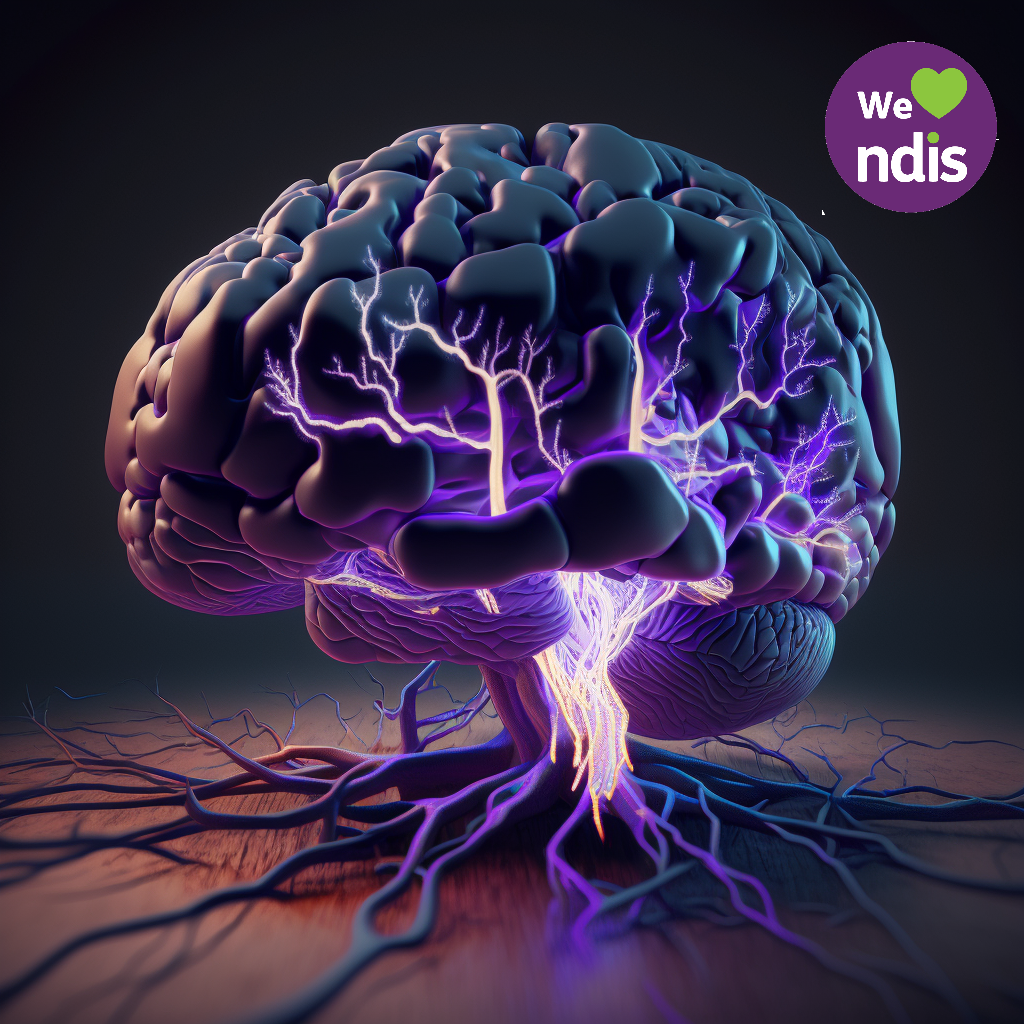NDIS epilepsy support helps people living with epilepsy to access the necessary services, equipment and supports they need to live a full life. Epilepsy is a neurological condition that affects a person’s brain functioning, resulting in seizures. It is estimated that around 0.6% (150,000) of Australians are living with epilepsy, and many of them rely on the support of the NDIS (National Disability Insurance Scheme) to help manage their condition. In this blog, we will discuss what NDIS support for people living with epilepsy looks like, including eligibility criteria, management plans, and the types of support available.
Introduction to NDIS Support for People Living with Epilepsy
The NDIS is a government-funded program that provides support and funding to people living with permanent and significant disabilities. It is designed to help people with disabilities to achieve their goals and live more independent lives. For those living with epilepsy, this includes providing access to funding for medical and therapeutic services, equipment, and other supports.
The NDIS can provide support for people with an epilepsy disability in a range of different ways, depending on individual eligibility and needs. To be eligible for NDIS support, a person must meet the disability requirements set out in the NDIS Act. This includes having a permanent and significant disability caused by an impairment or condition that affects their ability to participate in everyday activities.
What is Epilepsy and How Does it Affect Daily Life?
Epilepsy is a disorder of the central nervous system that can cause a person to experience seizures. Seizures can vary in intensity, from brief lapses in awareness to more severe convulsions. There are many different types of epilepsy and the severity of a person’s condition can vary.
Epilepsy can affect a person’s ability to participate in everyday activities. This can include difficulty concentrating, memory problems, difficulty with coordination, and fatigue. In some cases, a person with epilepsy may require assistance with activities of daily living, such as cooking, cleaning, and managing finances.
Are There Any Australian Government Assistance Programs Available for People Living with Epilepsy?
Yes, there are a number of government assistance programs available for people living with epilepsy in Australia. These programs are designed to provide financial assistance to help with the costs associated with living with epilepsy.
The Australian Government provides a range of financial assistance programs, such as the Disability Support Pension, Carer Payment, and Mobility Allowance. These programs provide financial assistance to people with disabilities to help them cover costs associated with medical care, equipment, and other necessary expenses.
What if you need someone to help monitor your seizures?
If your disability requires you to be observed for seizures and your family or carers are unable to provide the necessary support, the NDIS may finance a support worker or nurse to help you. NDIS may also fund attendant care services to assist you with activities of daily living, such as showering, dressing, and preparing meals. The NDIS may also help fund a seizure monitoring device for you, such as the Cura1 SeizureAlert Kit, these devices will assist in alerting your carer in the event of a seizure.
Is Epilepsy Eligible for Access to NDIS Support?
Yes, epilepsy is eligible for access to NDIS support if it’s related to your disability. The NDIS can provide funding and support to people living with epilepsy in a range of different ways. This includes funding for medical and therapeutic services, equipment, and other supports.
To be eligible for NDIS support, a person must meet the disability requirements set out in the NDIS Act. This includes having a permanent and significant disability caused by an impairment or condition that affects their ability to participate in everyday activities.
All services and resources that are funded by the NDIS need to comply with the NDIS’s funding guidelines. Generally, if you require long-term assistance related to your disability, the NDIS may be able to provide you with epilepsy-related support. However, the NDIS will require proof of this in the form of evaluations and reports from a certified medical specialist. Epilepsy support is one of the healthcare-related services that may be funded by the NDIS.
What Does an Epilepsy Management Plan Look Like?
A management plan for an individual living with epilepsy is designed to identify their needs and goals and provide a plan of action to achieve them. It is important for a management plan to be tailored to an individual’s specific needs and to take into account any changing circumstances.
A management plan typically includes a diagnosis of epilepsy, information on the types of seizures experienced, and any medications or treatments currently being used. It may also include a plan of action to reduce the risk of seizures, such as reducing stress levels, avoiding triggers, and avoiding activities that may be dangerous.
The plan may also include a range of supports to help a person manage their epilepsy, such as access to medical specialists, equipment and assistive technology, therapy, respite care, and other services.
Caring For Someone with Epilepsy
Caring for someone with epilepsy can be challenging. It is important for a carer to be aware of the signs and symptoms of a seizure, and what to do if a seizure occurs. It is also important to ensure the person with epilepsy is taking their medication as prescribed, and to provide emotional support and understanding.
It can be helpful to have a support network in place, such as family and friends, to provide assistance and support. It is also important to discuss any concerns or worries with a medical professional.
What Epilepsy Medication is Available for People?
There is a range of medications available for people with epilepsy, including anticonvulsants, anti-epileptic drugs, and benzodiazepines. The type of medication prescribed will depend on the type and severity of their epilepsy. It is important to follow the instructions provided by a medical professional when taking any medication.
What Can People with Epilepsy Be Entitled to Through the NDIS?
The NDIS can provide funding and support for people living with epilepsy in a range of different ways. This includes funding for medical and therapeutic services, equipment, and other supports.
This can include funding for medical specialists, equipment and assistive technology, therapy, respite care, and other services. It can also include funding for activities of daily living, such as cooking, cleaning, and managing finances.
Conclusion
Living with epilepsy can be difficult, but with the right support, people with epilepsy can live independent and fulfilling lives. The NDIS provides access to funding and support for people living with epilepsy, including medical and therapeutic services, equipment, and other supports. It is important to discuss eligibility and management plans with a medical professional and to ensure the necessary supports are in place.
Read more facts about epilepsy










